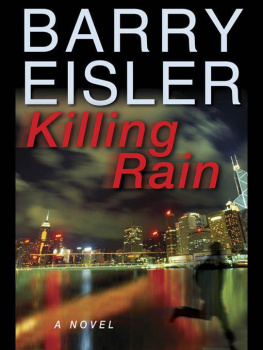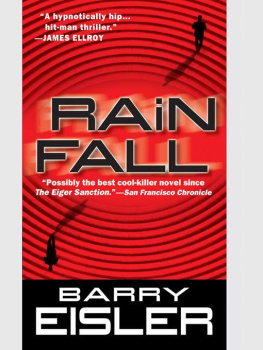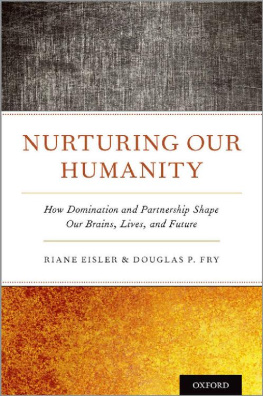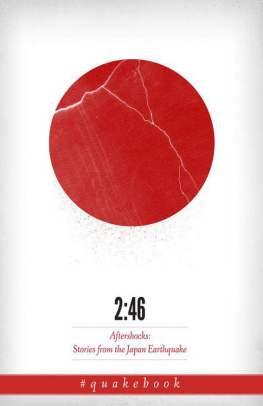Barry Eisler - The Detachment
Here you can read online Barry Eisler - The Detachment full text of the book (entire story) in english for free. Download pdf and epub, get meaning, cover and reviews about this ebook. genre: Detective and thriller. Description of the work, (preface) as well as reviews are available. Best literature library LitArk.com created for fans of good reading and offers a wide selection of genres:
Romance novel
Science fiction
Adventure
Detective
Science
History
Home and family
Prose
Art
Politics
Computer
Non-fiction
Religion
Business
Children
Humor
Choose a favorite category and find really read worthwhile books. Enjoy immersion in the world of imagination, feel the emotions of the characters or learn something new for yourself, make an fascinating discovery.

- Book:The Detachment
- Author:
- Genre:
- Rating:4 / 5
- Favourites:Add to favourites
- Your mark:
- 80
- 1
- 2
- 3
- 4
- 5
The Detachment: summary, description and annotation
We offer to read an annotation, description, summary or preface (depends on what the author of the book "The Detachment" wrote himself). If you haven't found the necessary information about the book — write in the comments, we will try to find it.
The Detachment — read online for free the complete book (whole text) full work
Below is the text of the book, divided by pages. System saving the place of the last page read, allows you to conveniently read the book "The Detachment" online for free, without having to search again every time where you left off. Put a bookmark, and you can go to the page where you finished reading at any time.
Font size:
Interval:
Bookmark:
Barry Eisler
The Detachment


I hadnt killed anyone in almost four years. But all good things come to an end, eventually.
It was good to be living in Tokyo again. The face of the city had changed, as it continuously does, and the great Touhoku quake and tsunami continued to make their presence known in the form of dimmed lights and weakened summer air conditioning, along with an atmosphere newly balanced between anxiety and determination, but in its eternal, essential energy, Tokyo is immutable. Yes, during my sojourn in safer climes, there had occurred an unfortunate profusion of Starbucks and Dean amp; Delucas, along with their innumerable imitators, but the havens that mattered remained impervious to this latest infestation. There was still jazz at Body amp; Soul in Minami Aoyama, where no seat is too far from the stage for a quiet word of thanks to the band members at the end of the evening; coffee at Cafe de lAmbre in Ginza, where even as he nears his hundredth birthday, proprietor Sekiguchi-sensei arrives daily to roast his own beans, as he has for the last six decades; a tipple at Campbelltoun Loch in Yurakucho, where, if you can secure one of the eight seats in his hidden basement establishment, owner and bartender Nakamura-san will recommend one of his rare bottlings to help melt away, however briefly, the world you came to him to forget.
My sleep was sometimes restless, though I told myself no one was looking for me anymore. But I knew if they were, theyd start with a place Id been known to frequent. Unless you had unlimited manpower, you couldnt use the bars or coffee houses or jazz clubs I liked. There were too many of them in Tokyo, for one thing, and my visits would be too hard to predict. You might wait for months, maybe forever, and though there are harder surveillance duty stations than the oases haunted by Tokyos roving night denizens, eventually youd start to stand out, especially if you were a foreigner. Meanwhile, whoever was paying would be getting impatient for results.
Which made the Kodokan a unique vulnerability. Id trained there for nearly twenty-five years before powerful enemies forced me to flee the city, enemies I had, by one means or another, managed to outlast. Judo at the Kodokan had been my only indulgence of anything like a routine, a pattern that could be used to fix me in time and place. Going back to it might have been my way of reassuring myself that my enemies really were all dead. Or it could have been a way of saying come out, come out, wherever you are.
Randori, or free training, was held in the daidojo, a modern, two-storied space of four connected competition zones open to bleachers ringing the area a floor above. On any given night, as many as two hundred judoka wearing the traditional white judogi, male and female, Japanese and foreign, buzz-cut college stars and grizzled veterans, take to the training hall, and the vast space is filled with cries of commitment and grunts of defense; earnest discussions of tactics and techniques in mutually incomprehensible tongues; the drum beat of bodies colliding with the tatami and the cymbal slaps of palms offsetting the impact with ukemi landings. Ive always loved the cacophony of the daidojo. Ive stood in it when its empty, too, and its solemn daytime stillness, its enormous sense of patience and potential, has its own magic, but its the sound of evening training that imbues the space with purpose, that brings the dormant hall to life.
On training nights the bleachers are usually empty, though nor is it unusual to see a few people sitting here and there and watching the judoka practicing below: a student, waiting for a friend; a parent, wondering whether to enroll a child; a martial arts enthusiast, making a pilgrimage to the birthplace of modern judo. So I wasnt unduly concerned one night at the sight of two extra large Caucasians sitting together in the stands, thickly muscled arms crossed over the railing, leaning forward like carrion birds on a telephone line. I logged them the way I reflexively log anything out of place in my environment, giving no sign that I had particularly noticed them or particularly cared, and continued randori with the partner I happened to be training with, a stocky kid with a visiting college team who I hadnt yet let score against me.
My play had reached a level at which for the most part I was able to anticipate an opponents attack in the instant before he launched it, subtly adjust my position accordingly, and frustrate his plan without his knowing exactly why hed been unable to execute. After a while of this invisible interference, often an opponent would try to force an opening, or muscle a throw, or would otherwise over-commit himself, at which point, depending on my mood, I might throw him. Other times, I was content merely to flow from counter to counter, preventing battles rather than fighting them. A different approach than had characterized my younger days at the Kodokan, when my style had more to do with aggression and bravado than it did with elegance and efficiency. As the offspring of a Japanese father and Caucasian American mother, I once wore a heavy chip on my shoulder. My appearance was always Japanese enough, but appearances have almost nothing to do with prejudice in Japan. In fact, the societys worst animus is reserved for ethnic Koreans, and burakumin-descendents of leather workers-and those others guilty of hiding their impurities behind seemingly Japanese faces. Of course, my formative years are long behind me now. These days, with my dark hair increasingly shot through with gray, I no longer pine for a country that might welcome me as its own. It took time, but Ive learned not to engage in those conflicts Ive always lost before.
From their size, close-cropped hair, and Oakley wraparound shades, favored these days by Special Forces and their private sector counterparts, I made the visitors as military, maybe serving, maybe ex. That in itself was unremarkable: the Kodokan is hardly unknown among the American soldiers, Marines, and airmen stationed in Japan. Plenty of them come to visit, and even to train. Still, I prefer to assume the worst, especially when the assumption costs me little. I let the college kid throw me with tai-otoshi, the throw hed been trying for all night and obviously his money move. In my former line of work, being underestimated was something to cultivate. I might have been out of the life, but I wasnt out of the habit.
I was careful when I left that night, my alertness at a higher than usual pitch. I checked the places I would set up if Id been trying to get to me: behind the concrete pillars flanking the buildings entrance on Hakusan-dori; the parked cars along the busy, eight-lane street; the entrance to the Mita-sen subway line to my left. I saw only oblivious sarariman commuters, their interchangeable dark suits limp and rumpled from the diesel-laced humidity, their brows beaded with sweat but their expressions relieved at the prospect of a few undemanding hours at home before the next days corporate exertions. Several riders on motor scooters went by, the two-stroke engines of their machines whining in and then fading out as they passed, but they werent wearing the full-face helmets favored by motorcycle drive-by gunners, and they never even slowed or looked at me. A woman rode a bicycle past me on the sidewalk, a chubby-cheeked toddler secured in a basket attached to the handlebars, his arms outstretched and his tiny hands balled into fists at what I didnt know. No one felt out of place, and I saw no sign of the soldiers. If they didnt show up again, Id classify their one-night presence as a nonevent.
Font size:
Interval:
Bookmark:
Similar books «The Detachment»
Look at similar books to The Detachment. We have selected literature similar in name and meaning in the hope of providing readers with more options to find new, interesting, not yet read works.
Discussion, reviews of the book The Detachment and just readers' own opinions. Leave your comments, write what you think about the work, its meaning or the main characters. Specify what exactly you liked and what you didn't like, and why you think so.







